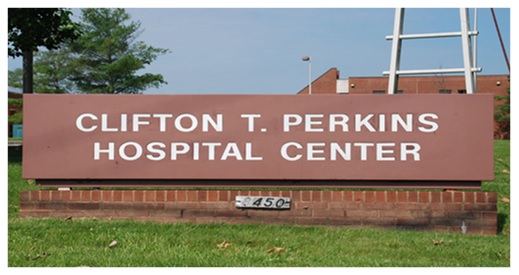ANNAPOLIS – The number of court-ordered individuals waiting to be treated in Maryland state psychiatric hospitals decreased by about 85 percent since May, according to the Department of Health and Mental Hygiene.
Maryland’s health Secretary Van T. Mitchell created a workgroup at the beginning of the summer to address the backlog of admissions.
He met with lawmakers and members of the community Tuesday in Annapolis to discuss the findings and recommendations of the workgroup.
“Bed availability is really based upon admissions and clinically appropriate discharges,” said Barbara Bazron, executive director of the Behavioral Health Administration. “We have to manage that process on a day to day basis.”
The issue has been ongoing for the past decade but became more urgent in May when 84 people were caught in limbo between criminal charges and treatment in state psychiatric hospitals.
The lack of availability in psychiatric hospitals means forensic patients, or people deemed unfit mentally to stand trial, are sent to jail.
Delegate Kathleen M. Dumais, D-Montgomery, a member of Mitchell’s workgroup, expressed concern Tuesday that without access to the hospitals, patients may be detained illegally.
“Jail is operating in the middle,” District Court Chief Judge John Morrissey, a member of the workgroup, said. “I don’t think the jails are equipped to treat mental health issues.”
There are five state psychiatric hospitals in Maryland. On Tuesday, Mitchell said Clifton T. Perkins Hospital Center, Springfield Hospital Center, Spring Grove Hospital Center, Thomas B. Finan Center and Eastern Shore Hospital Center have a total capacity of 944 beds.
Among them, Perkins is the only designated forensic facility, however all five hospitals treat court-ordered patients.
One person in a state facility bed costs more than $200,000 per year, according to the Community Behavioral Health Association of Maryland.
Mitchell said the state health department started working on the psychiatric hospital capacity issue in Maryland about a year ago.
But Mitchell’s workgroup found the backlog was not solely due to an inadequate number of beds.
“None of our hospitals basically communicated on a day-to-day basis,” Mitchell said. “Now they do.”
Maryland’s health department hired a new behavioral health executive director and installed CEOs at two of the five state psychiatric hospitals.
The Behavioral Health Administration monitored admissions and discharge data weekly.
The administration also went through 98 cases individually of patients labeled “ready to discharge” yet who remained in the hospitals. Fifty-two of these 98 patients were released.
“I could not have been happier with Secretary Mitchell’s presentation,” Baltimore City District Court Judge George Lipman said. “He has been very sincere in taking responsibility … He needs staff, unquestionably.”
Other groups at the hearing asked for better funding.
The Department of Health and Mental Hygiene received an additional $3 million from the state for this fiscal year, including more money for addiction services.
The Community Behavioral Health Association of Maryland said the backlog of pending patients in state facilities is in part due to a lack of investment in community-based behavioral health services.
Community-based programs are an alternative to hospitals, or the next step for patients ready for discharge from the state psychiatric facilities.
A spokeswoman for the association said it serves about 180,000 children and adults in Maryland’s public behavioral health system.
Dan Martin, Maryland Behavioral Health Coalition spokesman, said there needs to be a strengthening in community-based health to divert people from hospitals.
Representatives from the American Federation of State, County and Municipal Employees, a union for public service employees, asked for more properly trained staff and higher levels of compensation in the psychiatric hospitals.
Mitchell said the Department of Health and Mental Hygiene will establish a committee to track the progress of state hospitals and continue to make recommendations.
Twelve court-ordered patients still need beds in the psychiatric facilities, Mitchell said Tuesday.
“We need to own up to it,” Mitchell said. “We can’t sit here and expect everything to be perfect.”

